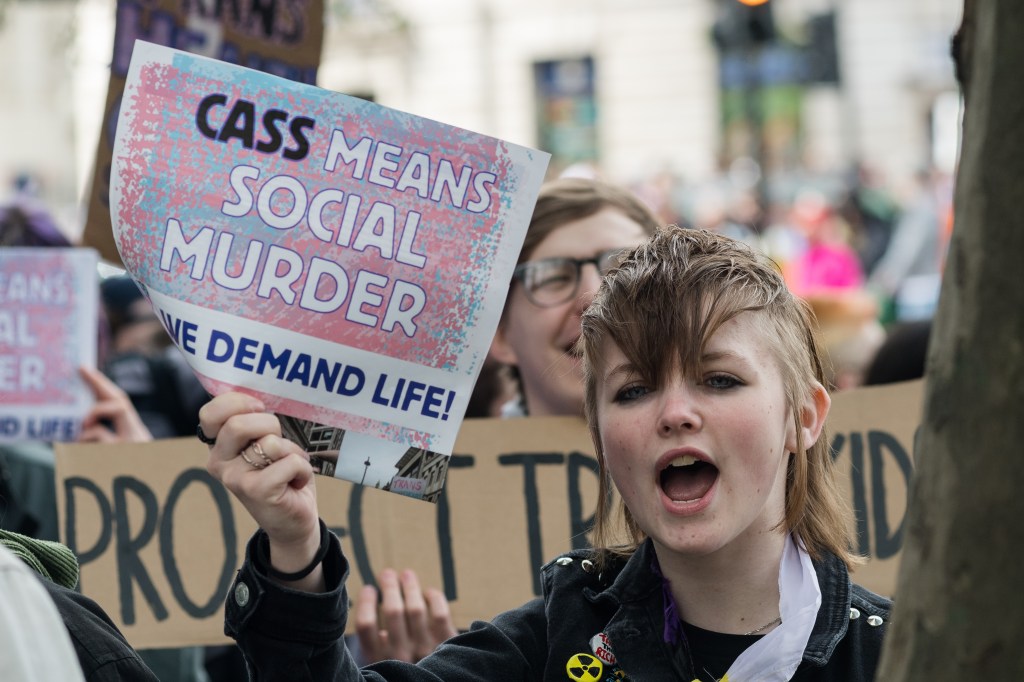Government rejects call for independent review of Cass Review

The government has rejected a petition calling for an independent review of the Cass Review. (Wiktor Szymanowicz/Future Publishing via Getty Images)
The government has rejected a petition calling for an independent review of the Cass Review into trans youth healthcare, stating that it’s “fully committed” to implementing its recommendations.
The report, an independent, 400-page review into the provision of healthcare for trans youth in England, was published in April last year and made upwards of 32 recommendations to restructure the way in which transgender youngsters receive care.
On Tuesday (January 14), the government announced that it had rejected a petition’s call for an independent evaluation on the Cass Review, which has been criticised by numerous trans groups.
The petition, which garnered more than 11,500 signatures but aimed to reach 100,000 by 12 June in a bid to be considered for debate in Parliament, states that trans healthcare should be “based on unbiased research that is peer-reviewed”.
It adds that an independent evaluation would ensure “children aren’t being unduly harmed” and that a “transparent process” would “guarantee fair access and treatment for trans children, as well as restore faith in the current NHS services”.
Government remains ‘fully committed to implementing all recommendations’
In response, the government wrote that it and NHS England “do not support an independent evaluation of the Review” and are “fully committed to implementing all recommendations from the independent and evidence-based Cass Review”.
Its response added that the report was “robust” and the “most comprehensive assessment of gender incongruence in children and young people that has been produced to date”.
It concluded that the Cass Review aims to ensure healthcare for people experiencing “gender dysphoria and incongruence” is “safe, evidence-based and clinically appropriate”.

In supporting its claim, the government stated that the report was “underpinned by a systematic review conducted by the University of York and a programme of proactive engagement”, and included more than “1000 individuals and organisations across the breadth of opinion on this subject including trans, gender questioning young people, as well as support and advocacy groups”.
In June last year, a group of clinicians and academics, with expertise in trans healthcare, labelled the report “deeply flawed”, saying it failed to fulfil its aims and should not be used to forge policies, while leading trans healthcare bodies also condemned the report over its “selective and inconsistent use of evidence” that “deprives” trans youth of the care they deserve.
Share your thoughts! Let us know in the comments below, and remember to keep the conversation respectful.
How did this story make you feel?

